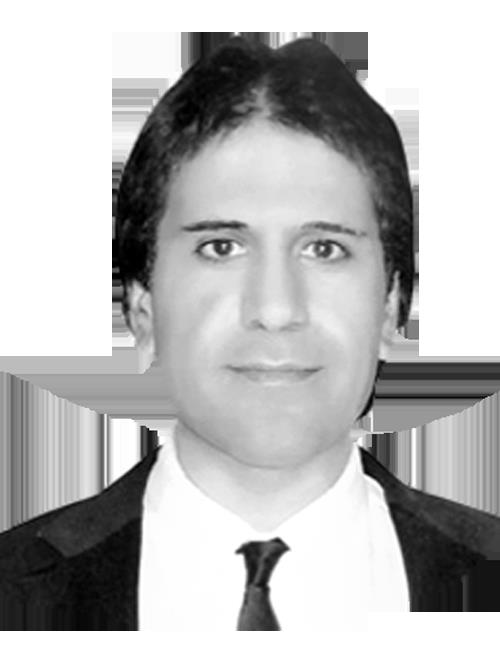
The interesting exchange on Saturday between Saudi Arabia’s Foreign Minister Prince Faisal bin Farhan and Josep Borrell, the EU high representative for foreign affairs and security policy, underlined the Kingdom’s call for a consistent approach to international crises and the need for a sustained dialogue between the EU and its regional partners, including Saudi Arabia and other Gulf Cooperation Council member states.
At the Doha Forum in Qatar, Borrell drew comparisons between the bombing of Ukraine’s Mariupol and earlier attacks on Aleppo, Syria, saying that “Mariupol is Europe’s Aleppo.” The Saudi foreign minister replied: “Well, Aleppo was our Aleppo.” Concerned that the foreign minister was assigning responsibility to Europe for Aleppo’s plight, Borrell retorted: “Who was bombing Aleppo? It was not the Europeans.”
Prince Faisal said, “No, not you,” explaining that the engagement of the international community and of “the powers that could be effective” was different in Mariupol than in Aleppo. The message of unity about Ukraine is commendable, the foreign minister added, but “we need to have a better conversation with the global community.”
Voting on resolutions related to Russia’s attack on Ukraine at the UN General Assembly revealed the need for that wider conversation. The GCC countries all voted for those resolutions, but there were dozens of countries that declined to join the “yes” vote.
The resistance at UNGA was not necessarily because of Russian links, Prince Faisal said, but “because of not having enough of a conversation about how to deal with the crisis in a globally fair context.”
Prince Faisal also said that the best way to deal with the Ukraine crisis is through dialogue between the two parties to reach a political solution and end the suffering of civilians.
In other comments before the Doha Forum, the Saudi foreign minister called for multilateral action, saying: “No challenge can be faced alone, including climate, economic or other pandemic challenges, and these issues cannot be overcome without working with each other.” He also lamented the weak commitment and limited participation among countries in the development of the international agenda. “We must make sure that the agenda meets the needs of everyone and not just some,” he said. “We need also to work with our partners on the international scene to be more effective in setting the international agenda.” The prince mentioned the need for that inclusive engagement to include the Global South in particular.
In these exchanges, there are two main issues: One about the inconsistent application of international law and the other about the inadequate “conversations” between the Global North and Global South, i.e., between the West and the rest. Both issues are manifested in the various reactions to the Ukraine crisis and in UN voting.
The lesson from Ukraine should be that violating the international rules-based system should not go unpunished, no matter where it takes place.
Dr. Abdel Aziz Aluwaisheg
Since 2011, Syrians have been brutalized by the Assad regime, Iran, Russia, Hezbollah and other foreign sectarian militias. Daesh and other terrorist groups have also ravaged the country. Hundreds of thousands of people have been killed and half the population made homeless. Many chemical weapons attacks by the regime have been documented, in addition to the indiscriminate bombing of population centers.
Other than issuing condemnations and providing (generous) humanitarian assistance for the victims, the international community has allowed the carnage in Syria to continue for more than 11 years now. The push for a political solution has been too feeble to produce results. UN envoys came and went without success.
The lesson from Ukraine should be that violating the international rules-based system should not go unpunished, no matter where it takes place. Allowing those rules to erode in one place, such as Syria, encourages unlawful action elsewhere.
Several speakers at the Doha Forum also pointed to an unequal international pecking order, where some countries and regions are considered more equal than others. Some spoke about the “double standards” of applying the global rules.
While some of those statements were spicy rhetoric to stimulate the discussion, it is important to address the underlying perception that there is not enough consultation between countries of the Global North and Global South, not only on political issues but also on dealing with health crises and trade issues.
Take the Vienna talks for example, which are aimed at resuscitating the Iran nuclear deal. GCC countries have been excluded from those discussions, despite their proximity to Iran and, as such, the fact they are the most affected by the outcome of the talks. While the US has consistently consulted with its GCC partners on these talks, others taking part have not done so. GCC concerns about the deal have been largely dismissed by most of the parties to the Joint Comprehensive Plan of Action.
The strong posture and action around Ukraine should help rebuild international unity to tackle other challenges, whether political or otherwise. In Syria, for example, there should be a determined push for a political solution. The international community has already spoken, in the form of many UN Security Council resolutions, especially Resolution 2254, which called for a transitional authority to hold elections and allow Syrians to freely choose their leaders. In addition to the new-found cohesion in the international community, the crisis in Ukraine may have changed the dynamics in Syria to encourage such a push.
The security and economic repercussions of the Ukraine crisis highlight the need for coordinated action between all affected regions and countries. Such coordination requires more robust and sustained engagement. The recent EU-GCC foreign ministers’ meeting in Brussels adopted a new joint action program for 2022 to 2027. It is a good beginning for such dialogue, covering the issues of priority for both blocs.
Dr. Abdel Aziz Aluwaisheg is the GCC Assistant Secretary-General for Political Affairs & Negotiation, and a columnist for Arab News. The views expressed in this piece are personal and do not necessarily represent GCC views. Twitter: @abuhamad1
Disclaimer: Views expressed by writers in this section are their own and do not necessarily reflect Arab News" point of view












